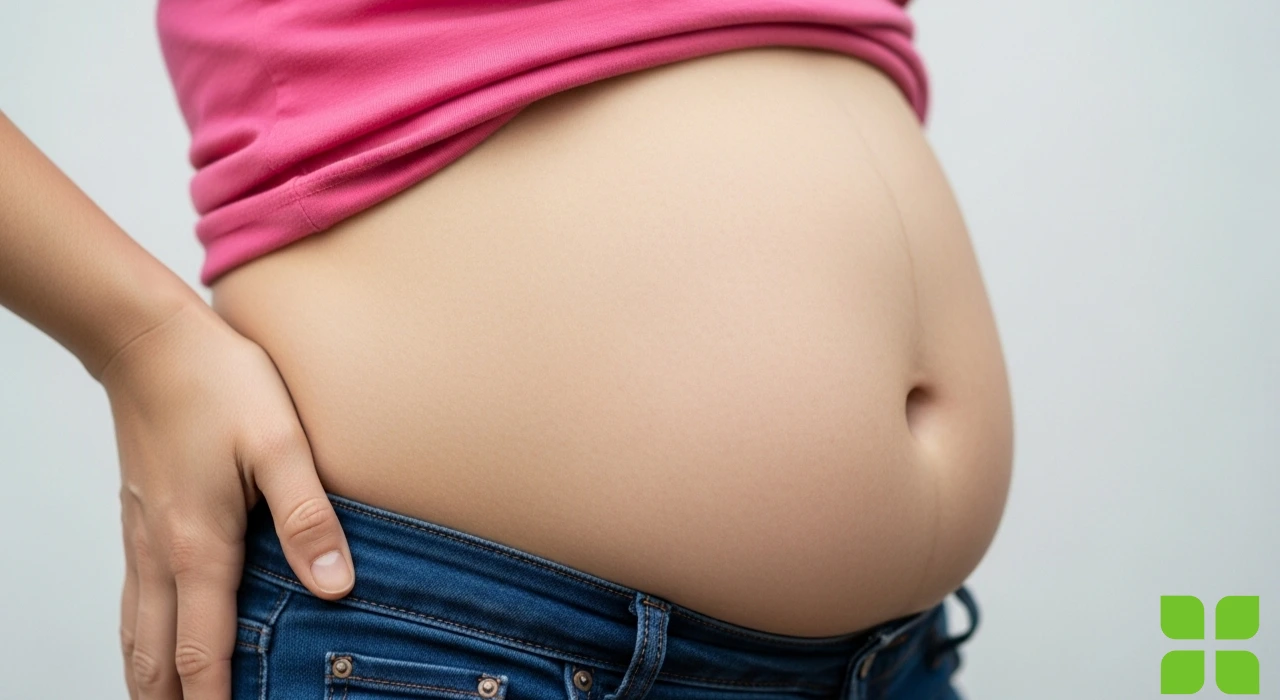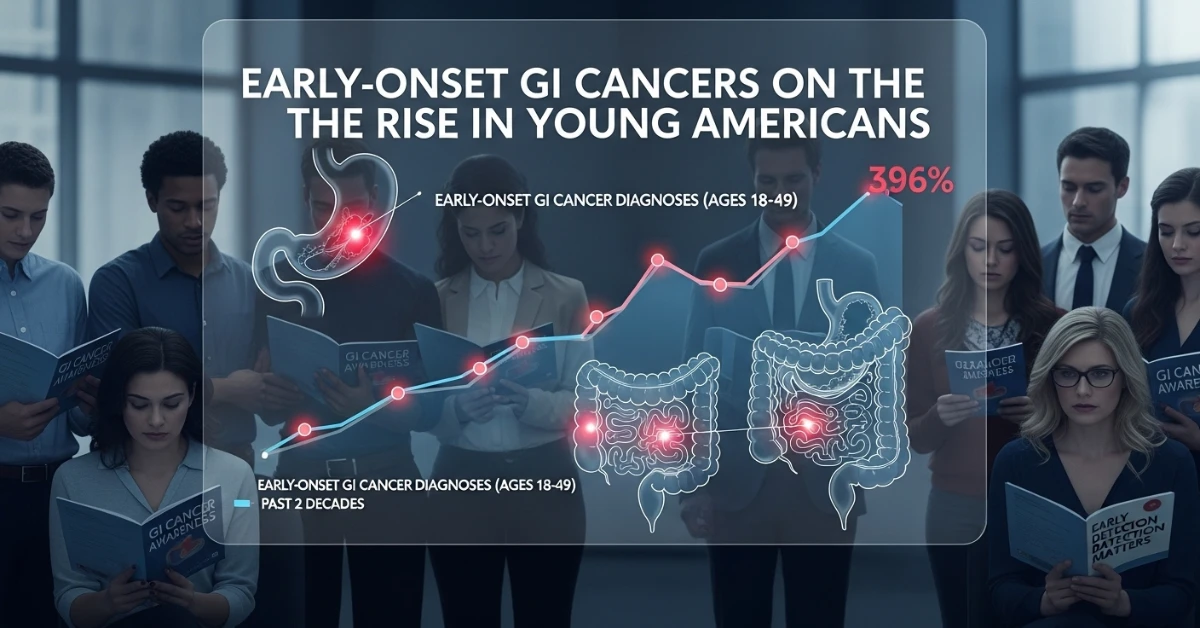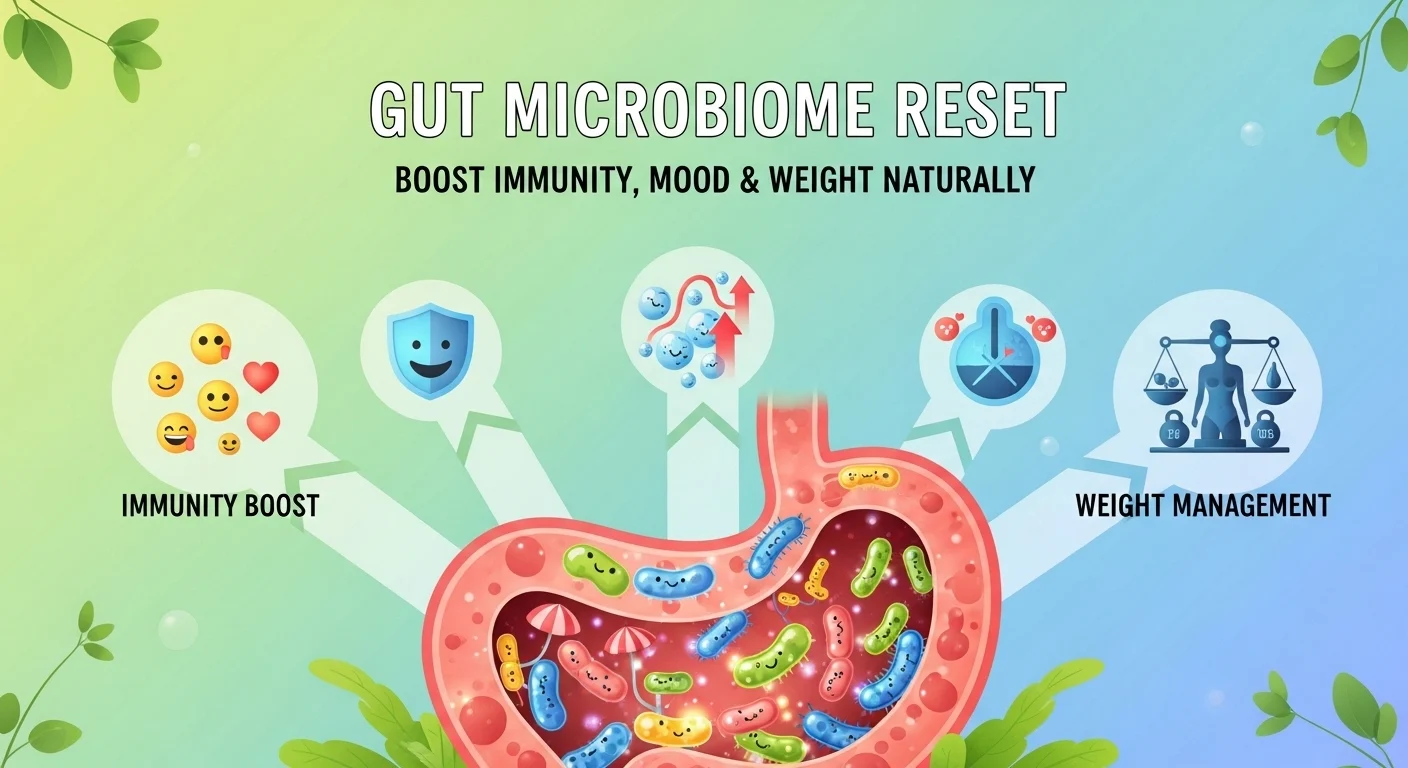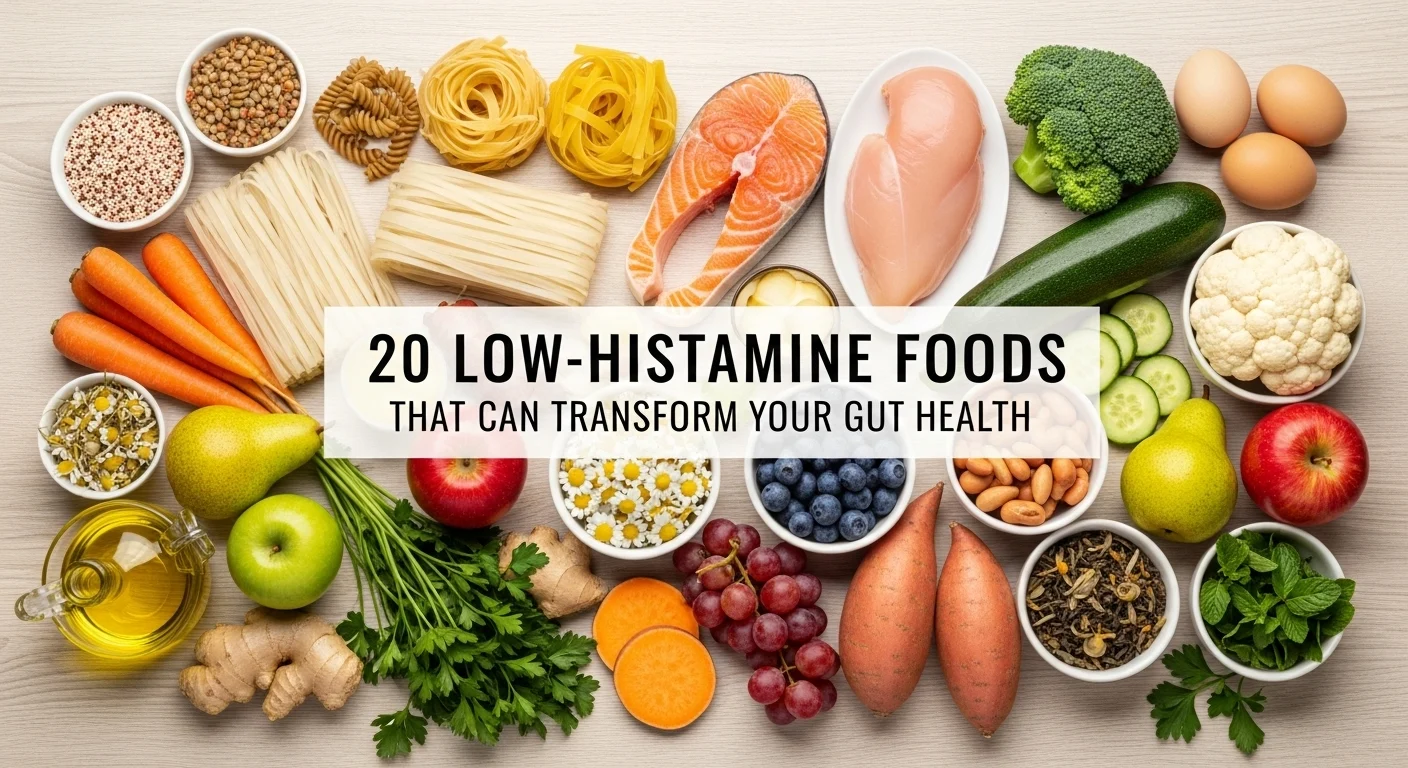We all like a glass (or two) of wines on the weekends, with supper, or after work(Alcohol belly) . However, drinking too much alcohol can lead to the development of an alcohol belly.
Most people often think of beer-drinking guys when they think of an alcohol belly. However, puberty can also cause women to acquire an alcohol belly, especially as they age.
Here is your comprehensive reference to alcohol bellies in women, including what causes it and how to permanently get rid of them, whether you’ve never heard of them before or are attempting to reduce weight and want to know how to get rid of yours.
Jump To
What are empty calories?
Calories with no nutritional value or advantages are known as empty calories. The capacity of food to be transformed into energy by the body is measured in calories. Every meal we eat has calories, and in order to survive, we must consume a specific number of calories daily.
In addition to calories, food also provides vitamins, minerals, antioxidants, and other nutrients that are vital to our general health. However, food is seen as an empty calorie if it merely provides calories and has no additional nutritional value or health benefits.
What snacks and drinks, then, are seen as empty calories? Foods and beverages that are low in calories include:
- Sugar-filled beverages, such as energy drinks, soft drinks, and fruit drinks
- Alcoholic beverages, including spirits, beer, cider, and wine
- Foods such as cakes, biscuits, doughnuts, and pastries
- Fast food and junk food
- Sweets and candy.
Additionally, empty calories have more calories than meals with higher nutritional value, meaning you’re taking more calories without any additional advantages. Weight gain may follow from this.
Why does belly fat tend to accumulate?
Generally speaking, guys are more likely to have belly fat. Although the ways that men and women store fat are comparable at first, this changes as people age. Men are more apple-shaped and more likely to acquire beer bellies because they tend to retain and collect fat around their abdomen.
Women, on the other hand, have more pear-shaped bodies because they prefer to retain fat around their hips and buttocks. Men often have more visceral fat, whereas women are prone to have subcutaneous fat.
However, this does not exclude women from gaining weight around their abdomens. The most apparent causes of belly fat are eating too many calories throughout the day and not exercising to burn them off. Excess weight is prone to accumulate in the stomach if you consume high-energy foods and beverages and don’t exercise enough.
However, another factor contributing to women’s stomach fat accumulation is aging. When body fat moves to the abdomen after menopause, this might start to happen more often for many women.
Age-related muscle loss also diminishes, and women may see a rise in abdominal fat even if they are not gaining weight.
This happens as a result of estrogen levels dropping, which affects the body’s ability to retain fat.
Do men and women have distinct ways of processing alcohol?
Yes, and in terms of weight growth, this distinction is significant. Because women often have lower water content and a greater body fat percentage than males, alcohol is less diluted and has a stronger effect.
In addition, more alcohol reaches the circulation in women because they generate less of the stomach-based enzyme usually breakdown alcohol. Even with lesser alcohol intake, this can intensify the effects of alcohol on hunger, fat storage, and metabolism, increasing the risk of belly fat development in women.
To what extent does drinking alcohol result in an alcohol belly?
Although the exact relationship between alcohol use and weight gain is still mostly unknown, there are a few ways that alcohol can contribute to weight gain and the development of an alcohol belly that go beyond consumption levels.
Let’s examine it more closely.
According to one research, there is a higher correlation between body weight and alcohol intake in both men and women due to two factors: the kind of alcoholic beverage consumed and the quantity of alcohol ingested.
Alcohol use is three times greater among males than women on average, and they are more likely to drink beer, which has more carbs than alcoholic drinks like red wine.
This implies that the likelihood of gaining weight and developing an alcohol belly increases with the amount of alcohol consumed. Additionally, you’re more likely to gain weight if you’re drinking alcoholic beverages that are heavy in calories and carbs, such as beer.
Yet, alcohol is also related to weight growth in other ways. Increased alcohol intake, particularly binge drinking, prevents your body from burning fat, increases appetite and decreases satiety (the sensation of fullness), and causes you to make poor eating choices, such as ordering a large takeout after a night out.
Men and women alike gain weight as a result of all of this, and if it happens frequently, it leads to increased calorie intake, weight gain, the development of stubborn fat, and other health issues including heart disease.
Beer belly verses wine belly
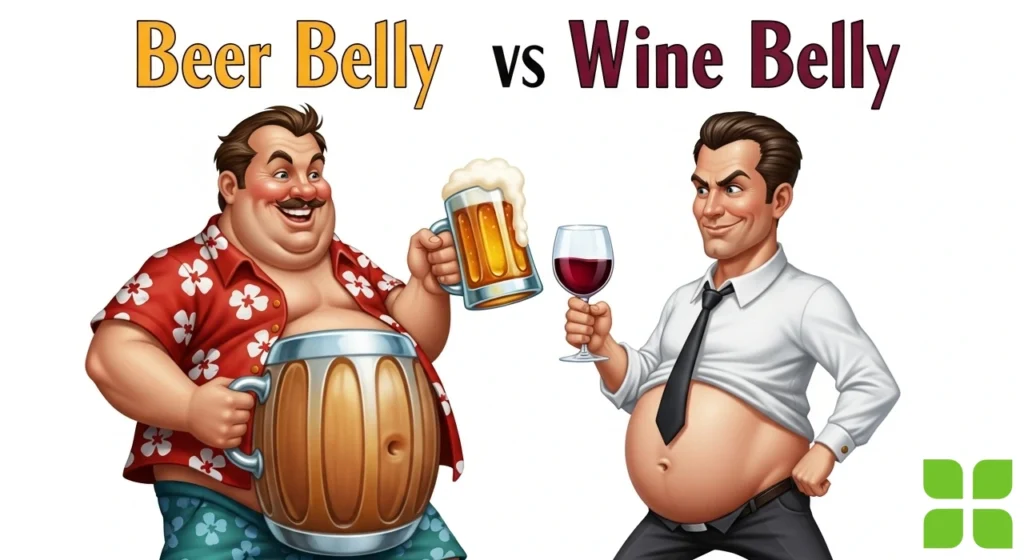
Whatever alcohol you consume, it still includes calories that might lead to weight gain, thus wine belly as well as beer belly are essentially the same thing. However, research has found that people who consume red wine have smaller stomach fat. According to one study, those who consume red wine had lower levels of visceral fat, which lowers their risk of metabolic syndrome and cardiovascular disease.
However, this does not imply that you should open a bottle of red wine and sip it all. Even though a typical serving of wine has less calories than beer (around 123), it’s still a significant amount of excess weight if you’re drinking several glasses of wine every night.
Moderation is crucial, as is cutting back on alcohol use and maintaining your general health with a healthy diet and regular exercise.
Does drinking wine cause bloating?
Since each person is unique, the effects of wine will vary greatly based on your body type. While wine is low in calories, it might induce bloating for some people.
This is because yeast, which gives wine its “rising” effect, may also contribute to an imbalance of beneficial and harmful bacteria in the body, which results in bloating.
Related:Welcome to Your 30-Day Lower Belly Reset
What differentiates a hormone belly with an alcohol belly?
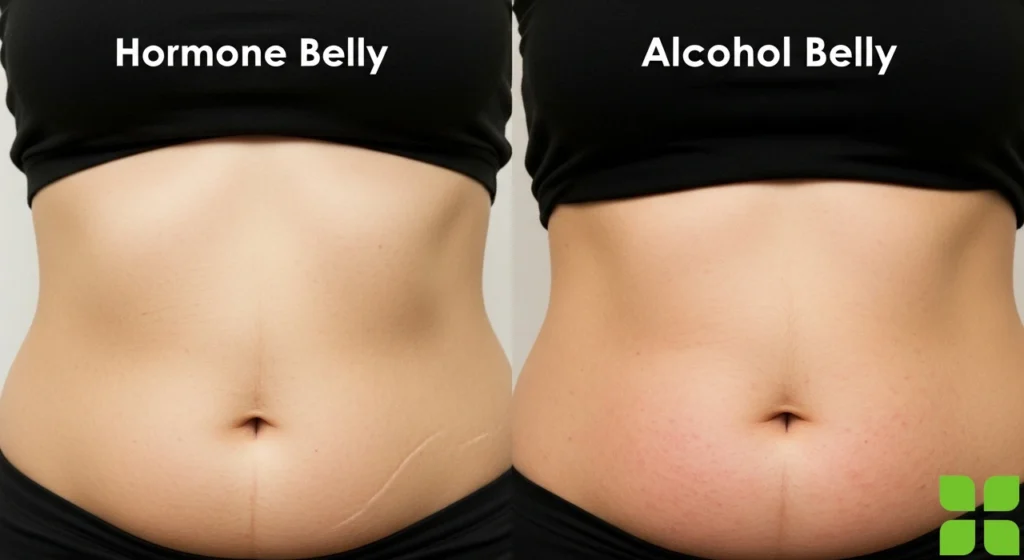
Taking excessive amounts of alcohol and taking alcoholic drinks with too many calories might result in an alcohol belly. Conversely, a hormonal belly is a weight gain in the lower abdomen brought on by an imbalance in hormones, either too high or too low.
Hormonal belly development can occur for a few causes, generally speaking, including:
- Menopause: Due to decreased estrogen production, significant changes in hormone levels during menopause promote weight gain, particularly around the abdomen.
- Slow thyroid: Your body may cease getting sufficient hormones from the thyroid gland.
- Elevated amounts of cortisol: Cortisol is the hormone that answers to and assists in controlling stress. Your body creates more cortisol when you’re worried or nervous, which causes your body to retain extra belly fat and makes weight loss more difficult.
How may weight reduction from an alcohol belly be approached holistically?
The good news is that there are several strategies for losing an alcohol belly, and they all begin with changing your lifestyle to consume less calories, stop drinking when you don’t need to, and make sure you exercise more to burn more calories.
Let’s start with some healthy behaviour’s that will help you lose weight and permanently eliminate your alcohol-related belly.
A healthy diet and more regular activity
There’s nothing wrong with occasionally having a glass of wine with dinner; we’re not here to tell you that you can’t drink alcohol at all.
Additionally, eating a good, balanced diet is crucial to preventing the accumulation of fat in your body. Lean meats, whole grains, and veggies can help you feel satisfied for longer, cut down on snacking, and control your appetite (particularly after drinking).
It’s also critical to increase your physical activity by integrating exercise into your daily routine, whether that means going to the gym, taking a Pilates class, swimming after work, or going on a daily stroll.
Uncertain about where to begin? Try this:
- Decide on a weekly drinking limit and follow it.
- Each week, choose two or three days to abstain from alcohol (and progress from there).
- Replace your typical beverage with one that has fewer calories.
- Avoid drinking on an empty stomach as it makes you feel more hungry.
- To avoid being taken off guard during social gatherings, make advance plans.
- You may reduce without feeling as like you’re losing out by making little changes and establishing reasonable goals.
Programs for holistic weight control
A variety of health coaches and medical professionals lead Juniper’s Weight Reset Program, which is intended for long-term weight control. The Weight Reset Program includes cutting-edge drugs that help control digestion, reduce appetite, and alter your relationship with food.
In order to help you feel less alone, health coaching may also help you make lifestyle adjustments, such as maintaining a schedule and finding other women who are traveling the same path as you.
